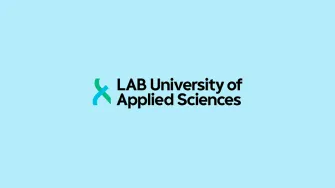KasvuSprintti EK – ajatushautomo pk-yritysten kasvun vauhdittajana
Research, Development, and Innovation (RDI) activities are a key part of Finland’s and the European Union’s strategic development. However, there is still room for improvement in leveraging the opportunities they offer. Companies face increasing pressure to meet the demands of responsibility, sustainability, the green transition, and digitalization—all of which require greater investment in research and development. Currently, RDI activities are often project-based and fragmented, with only a small number of SMEs engaging in systematic collaboration with higher education institutions. The biggest challenge lies in the differing goals and interests of these actors, which often hinder effective cooperation. SMEs focus on tangible results, operating with limited resources and prioritizing efficiency and productivity. In contrast, higher education institutions are evaluated based on the volume of their RDI activities, leading to a weaker understanding of SME needs and an emphasis on publicly funded projects rather than direct business impact.
This joint project between two regions aims to assess the feasibility of establishing a think tank within LAB University of Applied Sciences. Positioned at the intersection of the public and private sectors, the think tank would help clarify the roles of various RDI actors, ensuring that impact and practical benefits are at the forefront.
GOALS OF THE PROJECT
The project aims to develop 2–3 alternative operating models for the think tank and its launch. The think tank's role would be to activate SMEs in utilizing and enhancing their own RDI capabilities while providing insights into growth and its implementation. Additionally, the project seeks to develop an impact assessment framework that would serve as a tool for companies to verify the benefits of their development investments. At the same time, this framework would help the university of applied sciences measure the growth, renewal, and benefits generated through RDI collaboration.
IMPACT
1) The project will conduct a network analysis of the RDI ecosystem to enhance understanding of how RDI actors in Päijät-Häme and South Karelia operate in practice and what results their collaboration yields. This will facilitate more effective cooperation in the future.
2) The feasibility of establishing and funding a think tank will be assessed. The think tank will strengthen collaboration between SMEs and higher education institutions while supporting business growth. Additionally, it will encourage SMEs to engage in RDI cooperation.
3) An impact assessment framework will be developed to improve the monitoring of collaboration and ensure that resources are allocated to mutually beneficial and results-driven activities.
4) A plan for engaging networks and experts will be created to strengthen the scope and commitment of collaboration.
This joint project between two regions aims to assess the feasibility of establishing a think tank within LAB University of Applied Sciences. Positioned at the intersection of the public and private sectors, the think tank would help clarify the roles of various RDI actors, ensuring that impact and practical benefits are at the forefront.
GOALS OF THE PROJECT
The project aims to develop 2–3 alternative operating models for the think tank and its launch. The think tank's role would be to activate SMEs in utilizing and enhancing their own RDI capabilities while providing insights into growth and its implementation. Additionally, the project seeks to develop an impact assessment framework that would serve as a tool for companies to verify the benefits of their development investments. At the same time, this framework would help the university of applied sciences measure the growth, renewal, and benefits generated through RDI collaboration.
IMPACT
1) The project will conduct a network analysis of the RDI ecosystem to enhance understanding of how RDI actors in Päijät-Häme and South Karelia operate in practice and what results their collaboration yields. This will facilitate more effective cooperation in the future.
2) The feasibility of establishing and funding a think tank will be assessed. The think tank will strengthen collaboration between SMEs and higher education institutions while supporting business growth. Additionally, it will encourage SMEs to engage in RDI cooperation.
3) An impact assessment framework will be developed to improve the monitoring of collaboration and ensure that resources are allocated to mutually beneficial and results-driven activities.
4) A plan for engaging networks and experts will be created to strengthen the scope and commitment of collaboration.
Project period
-
Project state
Finished
Project area
National
Project funding
AKKE

Unit
Business and Hospitality Management
Project focus area
Intangible value creation




